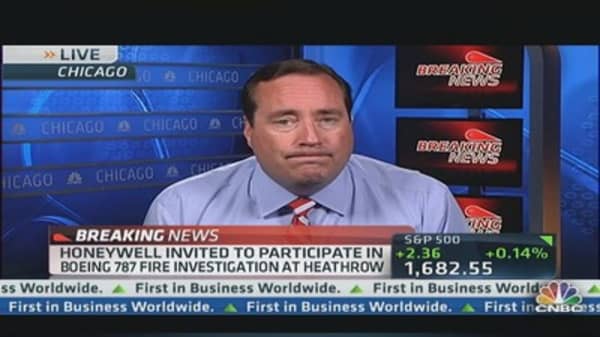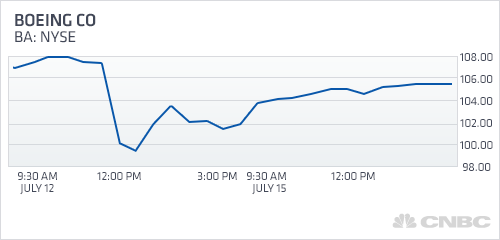Three days after a fire aboard an Ethiopian Airways 787 Dreamliner, investigators are focusing on what role the plane's emergency locating transmitter (ELT) may have played in the fire.
The ELT is a component on all commercial airplanes that sends out a signal during a crash to alert rescue crews on the location of the plane. It is always hooked up to a battery. Now investigators are trying to determine what role, if any, the Dreamliner's ELT played in Friday's fire.
Honeywell, which makes the ELT in the Dreamliner, said it is working with investigators in the United Kingdom.
Steve Brecken, director, global media and analyst relations, issued a statement to CNBC: "As is common in these situations, Honeywell has been invited to participate in the Ethiopian Airlines Boeing 787 fire investigation by the UK's Air Accidents Investigation Branch. We've sent technical experts to Heathrow to assist with the investigation, however at this time it is premature to speculate on the cause of the fire. We will continue to work closely with Boeing and the NTSB and await the analysis and output of the investigation before drawing any conclusions."
Brecken says Honeywell ELT products have been certified by the FAA since 2005 and are used in a number of different aircraft models. The company says it has never had a single reported issue with the product-line.
Sources familiar with the investigation said it is still too soon to pinpoint a cause for the Dreamliner fire.
(Read more: Despite fire, airlines flying Boeing's Dreamliner)





